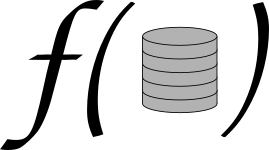PODS 2022 - Invited Talks, Accepted Papers, and Best Paper Award
The 41st ACM SIGMOD-SIGACT-SIGAI Symposium on Principles of Database Systems, PODS, will take place in Philadelphia, USA, from June 13th to June 15th, 2022. For more information visit https://2022.sigmod.org/
INVITED TALKS
Keynote
- Frank Neven (Hasselt University): Robustness against read committed: a free transactional lunch.
Tutorials
- Rediet Abebe (UC Berkeley & Harvard Society of Fellows): Data as Inequality.
- Wim Martens (Bayreuth University): Towards Theory for Real-Life Data.
ACCEPTED PAPERS
- Piotr Ostropolski-Nalewaja, Jerzy Marcinkowski, David Carral and Sebastian Rudolph. A Journey to the Frontiers of Query Rewritability.
- Rajesh Jayaram, David P. Woodruff and Samson Zhou. Truly Perfect Samplers for Data Streams and Sliding Windows.
- Mahmoud Abo Khamis, Hung Q. Ngo, Reinhard Pichler, Dan Suciu and Yisu Remy Wang. Convergence of Datalog over (Pre-) Semirings.
- Mahmoud Abo Khamis, George Chichirim, Antonia Kormpa and Dan Olteanu. The Complexity of Boolean Conjunctive Queries with Intersection Joins.
- Diego Figueira and Varun Ramanathan. Tractable Fragments of Extended CRPQs.
- Yilei Wang and Ke Yi. Query Evaluation by Circuits.
- Wei Dong and Ke Yi. A Nearly Instance-optimal Differentially Private Mechanism for Conjunctive Queries.
- Lijie Hu, Shuo Ni, Hanshen Xiao and Di Wang. High Dimensional Differentially Private Stochastic Optimization with Heavy-tailed Data.
- Hendrik Fichtenberger and Pan Peng. Approximately Counting Subgraphs in Data Streams.
- Marco Calautti, Georg Gottlob and Andreas Pieris. Non-Uniformly Terminating Chase: Size and Complexity.
- Marco Calautti, Ester Livshits, Andreas Pieris and Markus Schneider. Counting Database Repairs Entailing a Query: The Case of Functional Dependencies.
- Kazuhiro Kurita, Yasuaki Kobayashi and Kunihiro Wasa. Linear-Delay Enumeration for Minimal Steiner Problems.
- Wim Martens and Tina Popp. The Complexity of Regular Trail and Simple Path Queries on Undirected Graphs.
- Shangqi Lu, Wim Martens, Matthias Niewerth and Yufei Tao. Optimal Algorithms for Multiway Search on Partial Orders.
- Steffen van Bergerem, Martin Grohe and Martin Ritzert. On the Parameterized Complexity of Learning First-Order Logic.
- Jelani Nelson and Huacheng Yu. Optimal Bounds for Approximate Counting.
- Matthias Lanzinger. The Complexity of Conjunctive Queries with Degree 2.
- Yi Li and Mingmou Liu. Lower Bounds for Sparse Oblivious Subspace Embeddings.
- Georg Gottlob, Matthias Lanzinger, Cem Okulmus and Reinhard Pichler. Fast Parallel Hypertree Decompositions in Logarithmic Recursion Depth.
- Jarosław Kwiecień, Jerzy Marcinkowski and Piotr Ostropolski-Nalewaja. Determinacy of Real Conjunctive Queries: The Boolean Case.
- Jacob Focke, Leslie Ann Goldberg, Marc Roth and Stanislav Živný. Approximately Counting Answers to Conjunctive Queries with Disequalities and Negations.
- Flavio Chierichetti, Ravi Kumar and Silvio Lattanzi. The Gibbs--Rand Model.
- Carsten Lutz and Marcin Przybyłko. Enumerating Answers to Ontology-Mediated Queries.
- Sourav Chakraborty, Kuldeep S. Meel and N. V. Vinodchandran. Estimation of the Size of Union of Delphic Sets: Achieving Independence from Stream Size.
- Miika Hannula and Jef Wijsen. A Dichotomy in Consistent Query Answering for Primary Keys and Unary Foreign Keys.
- Markus L. Schmid and Nicole Schweikardt. Query Evaluation over SLP-Represented Document Databases With Complex Document Editing.
- Meghyn Bienvenu, Gianluca Cima and Víctor Gutiérrez-Basulto. LACE: A Logical Approach to Collective Entity Resolution.
- Olga Ohrimenko, Anthony Wirth and Hao Wu. Randomize the Future: Asymptotically Optimal Locally Private Frequency Estimation Protocol for Longitudinal Data.
- Diego Figueira, Artur Jez and Anthony Widjaja Lin. Data Path Queries over Embedded Graph Databases.
- Antoine Amarilli, Louis Jachiet, Martín Muñoz and Cristian Riveros. Efficient Enumeration Algorithms for Annotated Grammars.
- Karl Bringmann, Nofar Carmeli and Stefan Mengel. Tight Fine-Grained Bounds for Direct Access on Join Queries.
- Marco Calautti, Ester Livshits, Andreas Pieris and Markus Schneider. Uniform Operational Consistent Query Answering.
- Miklos Ajtai, Vladimir Braverman, T.S. Jayram, Sandeep Silwal, Alec Sun, David P. Woodruff and Samson Zhou. The White-Box Adversarial Data Stream Model.
BEST PAPERS
- Mahmoud Abo Khamis, Hung Q. Ngo, Reinhard Pichler, Dan Suciu and Yisu Remy Wang. Convergence of Datalog over (Pre-) Semirings.
- Jelani Nelson and Huacheng Yu. Optimal Bounds for Approximate Counting.
